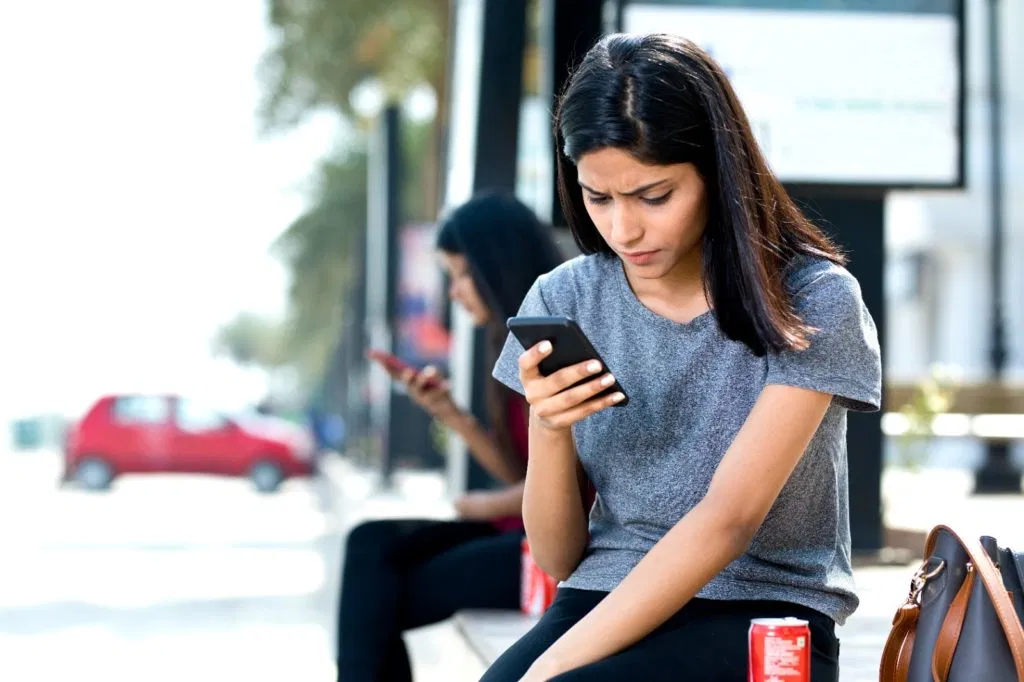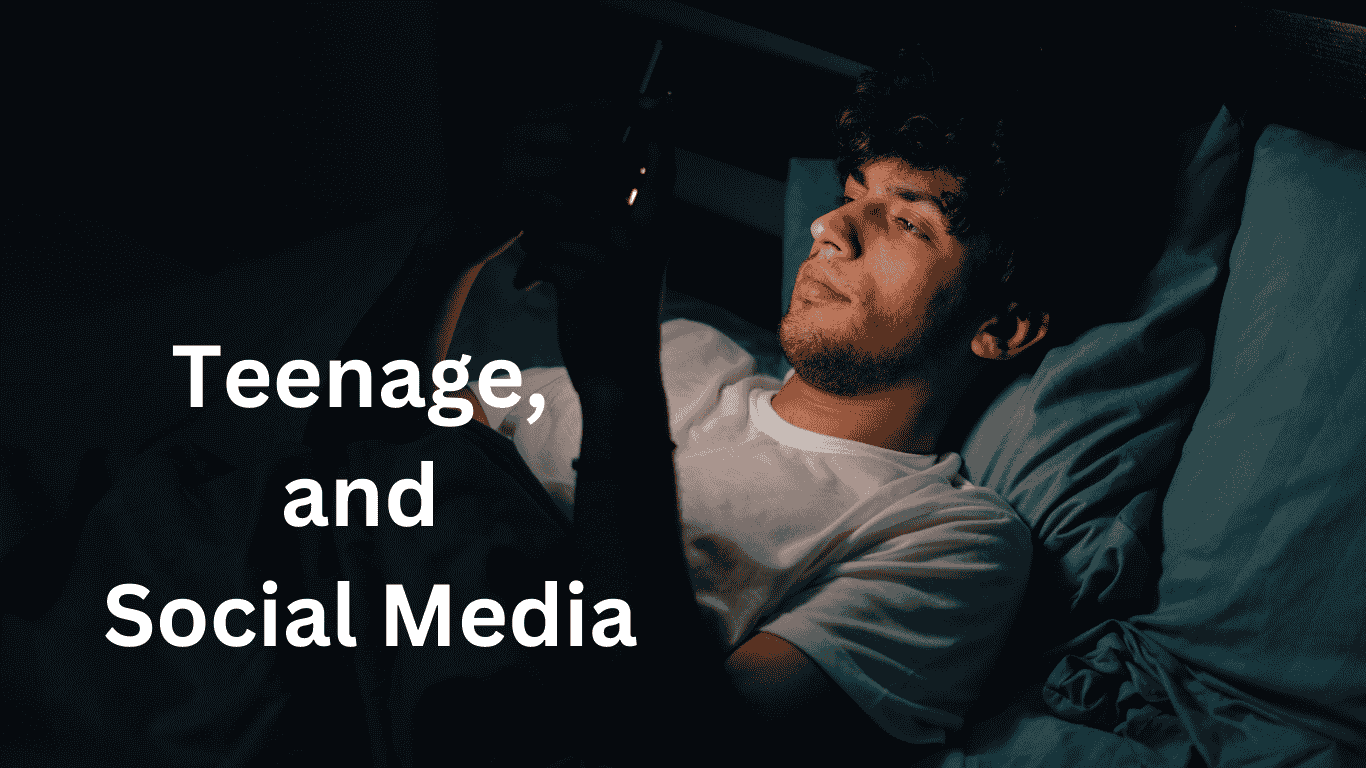The rise of mobile phone and social media usage among children is becoming a growing concern for parents, especially in metropolitan cities. In Australia, a recent decision to ban social media for children under 16 has caught the attention of Indian parents, sparking the question: Could India follow suit? Are our children’s online habits being overlooked by us, or is the government stepping in to do what we can’t?
With the increasing global awareness around the dangers of excessive screen time and its effects on children, it’s clear that this issue is becoming more serious. A striking example is a recent case involving a 15-year-old girl. She used to enjoy painting and listening to English songs at home, activities that seemed harmless at first. However, her family became alarmed when she began exhibiting self-harming behavior without any apparent reason. After seeking help from a psychologist, it was revealed that the songs she was listening to were filled with depressive lyrics, and her artwork had violent themes. Unbeknownst to her family, the girl had been heavily influenced by the toxic content she encountered on social media.
Cyber safety expert Gourab Dey highlights that such cases, where children’s behavior drastically changes due to social media exposure, are becoming more common. Parents are increasingly worried about the impact of these platforms on their children’s mental and emotional well-being.
As the debate continues, it raises the question: Is it time for India to consider stricter regulations around social media usage for children, following Australia’s example?

Impact of social media on teenage children
The Hidden Dangers of Social Media Use Among Children: Expert Insights and Growing Concerns
Cybersecurity experts, educators, and parents are increasingly alarmed by the harmful impact of social media on children, especially in terms of both mental and physical health. While some cases of social media misuse may seem like isolated incidents, they are rapidly becoming a common problem, with disturbing consequences. Experts like Gourab Dey and Mukesh Chaudhary are warning about the dangers that often go unnoticed by both parents and schools.
Disturbing Cases of Social Media Misuse
Cybersecurity expert Gourab Dey recently highlighted the case of a 16-year-old student who created a fake profile of his teacher, edited an objectionable photo, and shared it on social media. Shockingly, neither the school staff nor the child’s parents were aware of the situation until an investigation uncovered the truth. The parents believed their child was using the laptop to study, unaware of the online activities taking place.
Similarly, a young girl was caught chatting on social media instead of attending her online classes, a behavior that went unnoticed by her family for days. Mukesh Chaudhary points out that children, driven by the desire to follow trending content, may not always discern between what is right or wrong, often mimicking behavior they see online without understanding the consequences.
The Physical and Mental Toll of Social Media Use
We spoke to cybersecurity expert Mukesh Chaudhary, cyber law specialist Pawan Duggal, psychiatrist Sameer Malhotra, and educationist Anuradha Joshi. All of them agree that the widespread use of social media is taking a toll on children’s health—both physically and mentally.
Physical Health Issues
- Disturbed Sleep Cycles: Experts recommend limiting screen time before bed, as the blue light emitted by phones can interfere with sleep patterns. Poor sleep affects not only children’s well-being but also their performance in school.
- Posture Problems: Spending long hours hunched over a phone can lead to spinal or cervical pain. The constant poor posture while using phones can harm the body in the long term.
- Vision Issues: Extended screen time is causing children to develop vision problems, including needing glasses at a younger age. The strain on their eyes from prolonged exposure to screens can lead to serious long-term effects.
- Reduced Physical Activity: With more time spent on mobile devices, children are participating less in physical activities or extracurriculars, leading to a sedentary lifestyle.
- Dangerous Trends: Many children imitate stunt videos they see online, which can lead to serious injury.
- Early Drug Use: Children as young as 9 or 10 are now experimenting with drugs, a behavior that has been fueled by the content they encounter on social media.
- Brain and Hormonal Effects: The radiation emitted by mobile phones is harmful to children’s brains, leading to headaches, hormonal imbalances, and other neurological issues.
- Self-Harm: Social media exposure has also been linked to an alarming rise in self-harm among children. If parents try to limit phone access, many children react aggressively, further indicating the serious impact of screen addiction.
Mental Health Risks
- Depression and Anxiety: Excessive social media use is causing depression, suicidal thoughts, and negative behavioral changes in children. The constant need for validation through likes and comments is also leading to heightened anxiety levels.
- Reduced Focus: Research has shown that social media use is reducing children’s ability to focus, affecting their academic performance and daily tasks.
- Decreased Learning Ability: Children who spend excessive time on mobile phones may suffer from learning disabilities and a lack of self-control, which can lead to a decline in their academic achievements.
- Increased Aggression: The pressure of seeking validation on social media—through likes, comments, and followers—has made many children irritable and aggressive. Experts fear this trend could lead to more severe behavioral issues, including an increase in criminal behavior.
The Way Forward: Should India Follow Australia’s Example?
With the mounting concerns over the negative effects of social media, experts and parents alike are beginning to question whether stricter regulations are needed in India. The recent decision by Australia to ban social media for children under 16 has raised questions: Could such a move be beneficial for India as well?
While the debate continues, it is clear that the growing influence of social media on children’s lives requires urgent attention from both parents and policymakers. Taking action now could help mitigate the physical and mental risks associated with excessive screen time and ensure a healthier future for the younger generation.

Social Media Use Among Indian Children: Alarming Statistics and Global Trends
Social media usage has become an integral part of children’s lives worldwide, including in India. According to a report by Sentiment, around 93% of children between the ages of 13 and 17 globally are active on social media. In the United States alone, out of 40 million children, 37 million are engaged with various social media platforms. On average, an individual spends approximately 1 hour and 40 minutes daily on social media.
Social Media Use Among Children in India
A report from the International Journal of Pediatric Research highlights that 87.82% of children in India use social media. The breakdown of usage is as follows:
- 81.14% of children use WhatsApp
- 54.94% of children are on Facebook
- 10.5% of children use Twitter
- 70.61% of children are active on YouTube
- 65.34% of children use email
- 9% of children engage with other social media platforms
The widespread use of social media among children in India reflects a global trend, raising concerns about its impact on their physical and mental well-being. As social media continues to shape children’s daily lives, it becomes crucial to understand the effects and how it influences their behavior, development, and overall health.

